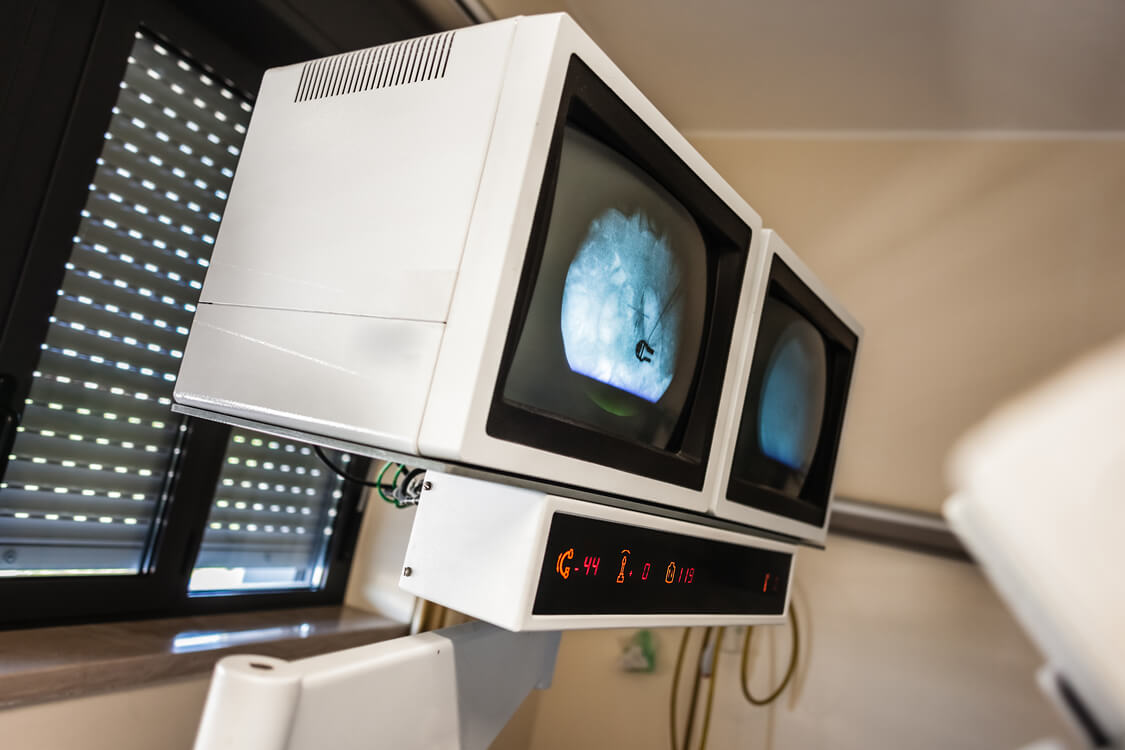Prostate Cancer
Our urology team at Urology Associates offers extensive expertise in managing prostate cancer. We will work closely with you to obtain the best possible outcome. Our group provides effective treatment for prostate cancer including surgery, radiation therapy, and chemotherapy.
About the Prostate:
The prostate is a male sexual organ located just beneath the bladder. The most important function of the prostate is producing fluid for semen. The seminal fluid nurtures the sperm made in the testicles and helps transport it out of the body with ejaculation. The prostate also helps control urination, as it sits just below to the bladder. The urethra, or tube that transports urine from the bladder out through the penis, passes directly through the prostate. A normal prostate is oval shaped and about the size of a walnut.
About Prostate Cancer:
Prostate cancer is very common. It is the second most common cancer in men with over 172,000 cases reported annually in the United States. Roughly 1 in 7 men will be diagnosed with prostate cancer in their life time. The overwhelming majority (60%+) of men diagnosed with prostate cancer are over 65 years old. The average age at diagnosis is around 66. It is very rare for men under 40 to be diagnosed with prostate cancer.
Most prostate cancer is extremely slow growing and confined to the prostate, allowing for effective treatment or active surveillance. However, some types of prostate cancer are more aggressive and can spread to other areas of the body. Adenocarcinoma is the most common type of prostate cancer, accounting for over 95% of all prostate cancers. Adenocarcinoma arises from the cells responsible for producing prostate fluid. Other, much more rare types of prostate cancer include: sarcomas, small cell carcinoma, neuroendocrine tumors, and transitional cell carcinoma.
It is important not to confuse benign prostatic hyperplasia (BPH) with prostate cancer. BPH is not prostate cancer but rather the growth of normal cells in the prostate. Pathologic changes to the cells occurs with prostate cancer which can cause them to grow more aggressively and travel outside of the prostate.
Risk Factors for Prostate Cancer:
There are certain risk factors that increase a man’s chances for acquiring prostate cancer. Some risk factors are controllable (lifestyle) and may be modified to reduce one’s chances for developing prostate cancer. The most common risk factors include:
- Increasing Age: As age increases so does the risk for prostate cancer. The average age at diagnosis is around 66 years old.
- Genetics: A strong family history of prostate cancer can increase a man’s risk of developing prostate cancer. If there are close relatives (father, brother, grandfather, etc.) with prostate cancer, you are at 2-11 times higher risk. A strong family history of breast cancer in close female relatives also may increase your chances of developing prostate cancer.
- African Americans: There are almost double as many cases of prostate cancer in African Americans compared to Asian and Caucasian men.
- High Fat Diet: A high fat diet increase chances of developing prostate cancer.
- Obesity: Obesity increases the risk of death (mortality) if you develop prostate cancer.
- Smoking: Research establishing the link between prostate cancer and smoking is still being investigated. However, some current literature suggest heavy smoking doubles your risk of developing aggressive prostate cancer. Fortunately, that risk evaporates after 10 years of not smoking.
Prostate Cancer Symptoms:
There may be no symptoms associated with prostate cancer, especially in the early stages. By the time men have symptoms, the cancer may have invaded the bladder or spread to other parts of the body, such as the bones. Therefore, screening is an important part of preventing harmful effects of prostate cancer.
Some potential symptoms men with prostate cancer may have include:
- Frequent or urgent urination
- Difficulty or pain when urinating
- Decreased urinary stream
- Erectile dysfunction (ED)
- Blood in semen
- Pain in lower back, hips, or thighs
How We Diagnose Prostate Cancer:
As described above, prostate cancer usually presents with little or no symptoms, making screening very important. Clinical history and risk factors are considered when determining the level of screening and testing performed on patients. Some of the tests we use to diagnose prostate cancer include:
- Prostate-specific antigen (PSA): Although somewhat controversial, the PSA is a blood test that gives some insight about the prostate. PSA is a substance produced by your prostate. A small amount of this substance enters the blood stream and is able to be detected. An elevated PSA (>4.0) could be an early warning for prostate cancer. However, PSA may be elevated for other reasons including: BPH, recent ejaculation, prostatitis (infection of the prostate), recent illness, etc. Most of the time PSA is elevated for reasons other than prostate cancer. Nevertheless, evidence does suggest that obtaining and monitoring PSA can increase early detection of prostate cancer.
- Digital rectal exam (DRE): Inserting a gloved, lubricated finger into the rectum to feel the prostate can help detect prostate cancer. Like the PSA, this is a screening test used in combination with the above to give more insight about the prostate. It is usually performed annually for men between 50-55 years old.
- Genetic testing: New tests are now available for men when there may be suspicion for prostate cancer. Using either blood or urine, the probability of prostate cancer is generated using certain genetic and clinical factors. Our team may suggest genetic testing if there is elevated suspicion for prostate cancer.
- Transrectal ultrasound (TRUS): A well lubricated ultrasound probe, which is roughly the size of a cigar, can be placed into the rectum to further evaluate the prostate. This is done when there is an elevated suspicion for prostate cancer based on screening tests and clinical history/exam. Usually this is done with biopsy (below).
- Biopsy: If there is clinical suspicion for prostate cancer, a biopsy may be performed. This is the most specific and definitive test for prostate cancer. Generally, 12 small samples are taken from the prostate and sent off to lab for analysis. The biopsy takes around 15 minutes and is usually tolerated well. We are now using MRI fusion biopsies in some cases. This is when an MRI picture of the prostate is combined with an ultrasound to pinpoint specific areas of concern for biopsy.
Prostate cancer rates are continuing to rise, and statistics revealed in 2018 by Prostate Cancer UK show that prostate cancer has now become a bigger killer than breast cancer for the first time. For more frequently asked questions, check out this article in the Telegraph.
Treatment Options:
Our urology team provides exceptional care and will work with you to achieve the best possible outcome. Depending on factors including age, co-morbid conditions, type of prostate cancer, etc., the following treatment options may be offered to you:
- Active surveillance/”watchful waiting”
- Immunotherapy, like Provenge
- Radiation therapy
- Hormone therapy
- Chemotherapy
- Surgery/Minimally invasive surgery (da Vinci prostatectomy)
About 1 in 7 men will be diagnosed with prostate cancer in their lifetime.







